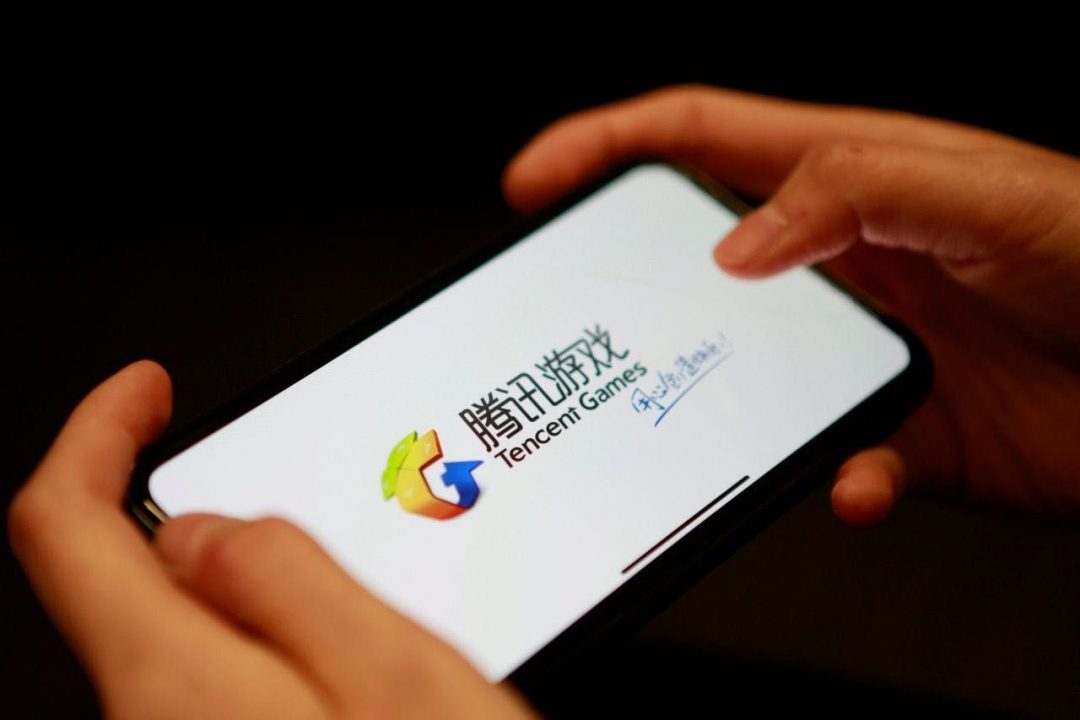Mentioned in this article
On May 7, Tencent Games ![]() shut down one of its most popular mobile games – PLAYERUNKNOWN’S BATTLEGROUNDS Mobile
shut down one of its most popular mobile games – PLAYERUNKNOWN’S BATTLEGROUNDS Mobile ![]() (PUBG Mobile), in China, and simultaneously released a “new” battle royale game. In terms of game mechanics, maps, or even the logo, the game is strikingly similar to PUBG Mobile. It’s a classic “face changing” move by Tencent Games. But why did the company do this? What are the benefits of all this?
(PUBG Mobile), in China, and simultaneously released a “new” battle royale game. In terms of game mechanics, maps, or even the logo, the game is strikingly similar to PUBG Mobile. It’s a classic “face changing” move by Tencent Games. But why did the company do this? What are the benefits of all this?
In this first in a two-part series, we will look specifically at the background of the Chinese government’s game approval process, in order to better understand the motivation of Tencent’s actions.
Editor’s Note: While the majority of outlets refer to this game by its translated Chinese title “Game for Peace,” Tencent’s official English title is Peacekeeper Elite. We will be using the latter for these articles.
What is The Game Approval Process in China?
There are two systems for game publishing in the world. One is a content rating system, another is a verification system. The content rating system is widely applied in the west, such as the Entertainment Software Rating Board (ESRB) in North America; the Pan European Game Information (PEGI) in Europe; and Computer Entertainment Rating Organization (CERO) in Japan. These types of systems are also widely used in other entertainment industries, like film and television.
Unlike the west, China has an applied verification system for game publishing. Factors that might affect a game’s chances for approval include its content (e.g. violent imagery or themes), or it can be politically influenced (i.e. the relationship China has with the country in which the game was developed).

Credit: Tencent Games
Simply put, every game in China needs two types of numbers for game publishing, granted by the Chinese government. One number is called a “Digital Product Publishing Access Number,” granted for game approval by the State Administration of Press, Publication, Radio, Film, and Television of The People’s Republic of China (SAPPRFTTPRC). Another number is called a “batch number,” and is given by the Ministry of Culture and Tourism of The People’s Republic of China. In general, the game approval process has been a significant gate for game publishing.
On March 28, 2018, the Chinese government passed a policial proposal, upgrading and merging several governmental departments. One result of this was that the SAPPRFTTPRC announced a shutdown of some previous government functions, including a freeze on game approvals.
Why Tencent Needed Game Approval for PUBG Mobile
The freezing of game approvals in China continued for nine months, from March 28 to Dec. 21, 2018. Unfortunately, for PUBG on PC and PUBG Mobile, this nine-month period was an important time for its development and financial growth.
In November of 2017, Tencent signed a partnership deal with Bluehole Studio for the exclusive distribution rights to PUBG in China. The following February, Tencent released the mobile version of PUBG called PUBG Mobile in China, developed by its own R&D studio – Guangzi Studio. However, even as one of the biggest gaming companies in the world, Tencent still could not receive game approval by the Chinese government during this time period.
On one hand, game approvals, in general, were still frozen in China. On the other hand, the specific nature of the battle royal genre and its content were considered too violent and controversial for the Chinese audience. For example, the inspiration for the PUBG map “Erangel” is an island near Russia, where it was occupied by military forces after WWII. In addition, the word “kill” is also recognized as a violent term. In Peacekeeper Elite, the “war” theme has been rebranded as a “military exercise,” and the term “kill” is replaced with “defeat.”
For a game publisher, making a game profitable is the end goal. However, in China, if a game does not have approval by the Chinese government, even the largest publisher cannot monetize their product. It should be noted that from the start to the end, PUBG Mobile still hasn’t received game approval by the Chinese government. In other words, PUBG Mobile has always been a test version of the game in China—a purely free game.
According to research by GameLook, PUBG Mobile reached 30M daily active users (DAU) outside of the Chinese market in December of 2018. In addition, the game had been downloaded 200M times over eight months after its release. In August of 2018, revenue for PUBG Mobile outside of China reached over $50M USD. Every sign was telling Tencent that PUBG Mobile had huge profit potential in the gaming industry. In addition, as the popularity of the game increased, so did the cost of servicing and maintaining servers.
According to research by QuestMobile, in October of 2018, PUBG Mobile’s monthly active users (MAUs) reached 167M, with over 80 minutes per day per player. This was close to Tencent’s own top mobile multiplayer online battle arena (MOBA) game – Honor of Kings, which had 194M MAUs and over 116 minutes using time per day, per player.
As time went by, Tencent missed an opportunity to monetize players. On Nov.14, 2018, Tencent registered a new trademark – “PUBG Game for Peace” with the Trademark Office of National Intellectual Property Administration (later changing its official name to Peacekeeper Elite). It’s hard to imagine that such a small move by Tencent would become a major step in the future of PUBG Mobile.
In Part Two of this series we will look specifically at what sacrifices Tencent had to make to get game approval for Peacekeeper Elite, and the effect the game will have on the esports industry.

